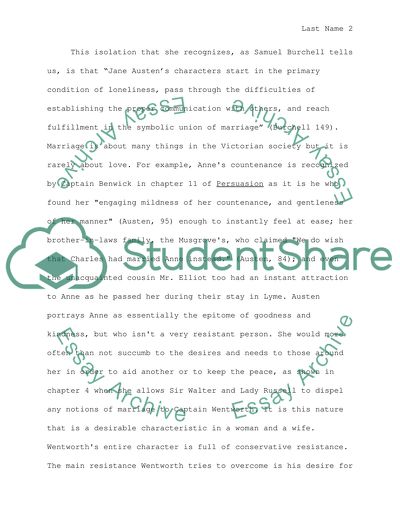Cite this document
(“The Role of Marriage in Persuasion Essay Example | Topics and Well Written Essays - 2500 words”, n.d.)
Retrieved from https://studentshare.org/environmental-studies/1415629-the-role-of-marriage-in-jane-austen-s-fiction-with
Retrieved from https://studentshare.org/environmental-studies/1415629-the-role-of-marriage-in-jane-austen-s-fiction-with
(The Role of Marriage in Persuasion Essay Example | Topics and Well Written Essays - 2500 Words)
https://studentshare.org/environmental-studies/1415629-the-role-of-marriage-in-jane-austen-s-fiction-with.
https://studentshare.org/environmental-studies/1415629-the-role-of-marriage-in-jane-austen-s-fiction-with.
“The Role of Marriage in Persuasion Essay Example | Topics and Well Written Essays - 2500 Words”, n.d. https://studentshare.org/environmental-studies/1415629-the-role-of-marriage-in-jane-austen-s-fiction-with.


